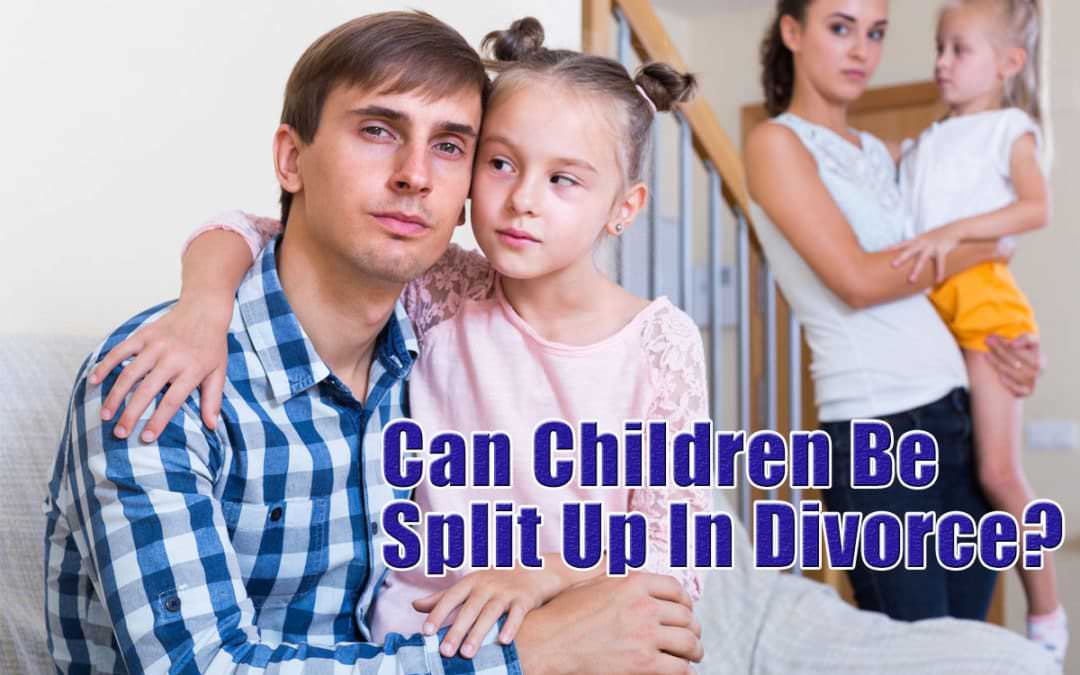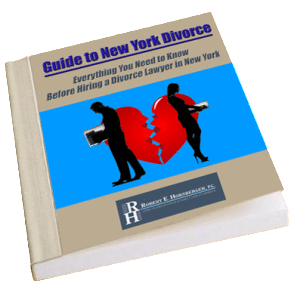Can Siblings Be Separated from One Another When Parents Divorce?
As a Long Island divorce attorney, I’ve seen occasions where, when parents are divorcing, the children have different opinions about which parent they want to live with after the divorce.
Generally speaking, New York courts do not separate siblings when deciding child custody. This is because it is usually in the children’s best interest to stay together. However, in cases where there is an “overwhelming need” to separate siblings, this has happened in New York.
Separation of Siblings is Frowned Upon in Nassau County and Suffolk County Courts
Sibling relationships, like other family relationships, are very important for child development. Nassau County and Suffolk County courts have repeatedly acknowledged the importance of maintaining these important relationships as much as possible in the event of divorce. The New York Court of Appeals, the highest court in New York, has even said that “the separation of siblings… is to be frowned upon.” Because of this standard, the party that proposes that the siblings should be separated bears the burden of proving that this arrangement would serve the best interests of the children.
Best Interests of the Child Are Considered by Nassau County, Suffolk County Courts
Nevertheless, in child custody cases in New York, the best interest of the child and the family as a whole is of the utmost importance. The primary consideration of what will be in the best interest of the children is what arrangement is most likely to promote their individual happiness and general well-being. A court will consider whether each parent can support the child’s development, provide parental guidance, and the impact that awarding custody to one of the parents will have on the child’s relationship with the other parent. The court looks at the totality of the circumstances when determining what is in the best interests of the children.
Sometimes Children’s Best Interests Are With Different Parents
In some cases, it has been determined that the best interests of different children was with different parents. This reasoning has played out in some especially acrimonious divorce cases, where each child has a strong desire to live with one parent or the other. The opinions of older, more mature children, who have their mind made up on where they would like to live and with whom, can certainly influence the court’s decision. However, while the child’s preference might be an important factor, the court will also look to whether the child may be being manipulated by a parent contrary to his or her best interest.
Sometimes the best interests of the children suggest that the siblings should live with different parents. Since long battles over child custody can be particularly taxing on not only parents but also their children, it is important to come to a resolution as quickly as possible. Particularly when there are “toxic” or volatile relationships between certain family members, it does not make sense to force a custody agreement that will only create more conflict going forward. For example, where a son has a toxic and volatile relationship with his father that would only intensify if the child was placed in that parent’s custody, a court is unlikely to order that custody arrangement. However, consider that this child’s sibling did wish to live with their father.
In one case, Kramer v. Kramer in Nassau County Supreme Court, the court faced a similar set of circumstances. The court found that it was in the family’s best interests to split the siblings by giving custody of two children to the mother and of one child to the father. The court said that placing the daughter with the mother would make it likely she would develop the same hostility toward her father as she grew older. In this case, in order to maintain long term stability in the family, splitting the siblings was the best arrangement.
When parents cannot come to an agreement on their own, the decision will become the court’s decision. The court will then take into account the wishes of each parent, the wishes of each child, and the total circumstances surrounding the family. The decision will usually be based on whether the arrangement is the most likely to provide long term stability for the children.
Questions About Child Custody and Visitation on Long Island?
See this page to learn everything you need to know about Child Custody and Visitation on Long Island.
To learn more about what you need to know about Child Custody on Long Island, visit this page on Child Custody or contact us at 631-923-1910 for a complimentary consultation.
Contact an Experienced Long Island Divorce Lawyer for a Free Consultation
It is important that you speak to an experienced attorney to assist you with you with your divorce or child custody matters. The Law Office of Robert E. Hornberger, Esq., PC provides free consultations and is experienced in all aspects of matrimonial law, including child custody, visitation, and child support. If you have questions about your separation agreement or divorce, contact our office today at 631-923-1910 to schedule your free consultation..
Download our Free New York Divorce Guide
Our 41-page “Guide to New York Divorce: What You Need to Know Before Hiring a Divorce Lawyer in New York” written by an experienced family law lawyer Long Island’s Robert E. Hornberger, Esq., provides you with real information on the divorce process and the laws it rests upon in the state of New York. This book will help give you a solid foundation upon which you can begin the process of making your family’s, life better. Download your Free Guide to New York Divorce here.














